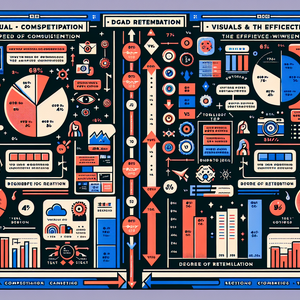Gender Disparity in Physician Salaries: A Deep Dive

In 2021, a report from the Association of American Medical Colleges (AAMC) revealed that female physicians earned approximately 25% less than their male counterparts. This gap is alarming, especially given that women comprise nearly half of all medical school graduates. Several factors contribute to this wage disparity.
Specialty Choices
Women are more likely to enter primary care specialties, which typically offer lower salaries compared to surgical or specialty fields dominated by male physicians. According to the AAMC, women's representation in higher-paying specialties, such as orthopedics or cardiology, is significantly lower. For instance, only about 10% of orthopedic surgeons are women. This underrepresentation in lucrative specialties directly impacts overall earnings for female physicians.
Work Hours and Part-Time Roles
Many female physicians opt for part-time positions or flexible schedules, often to balance family responsibilities. While this choice provides a work-life balance, it can also result in lower annual earnings compared to their full-time male colleagues. According to a study published in the Journal of the American Medical Association, female physicians are more likely to work part-time (about 36%) compared to their male counterparts (approximately 12%). This discrepancy in work hours further contributes to the wage gap.
Negotiation Disparities
Research indicates that men are more likely to negotiate their salaries than women. A survey by the American Medical Women's Association highlighted that only 36% of women negotiated their starting salary, compared to 56% of men. The reluctance to negotiate, coupled with biases in hiring practices, can lead to male physicians starting at higher salary points, perpetuating the wage gap over time.
Systemic Biases
Implicit biases and stereotypes about gender roles can influence hiring, promotions, and salary decisions. Female physicians may face skepticism regarding their capabilities, affecting their career advancement opportunities and overall earnings. Studies have shown that women in leadership positions are often judged more harshly than men, which can hinder their progression in the medical field.
Personal Stories: Navigating Challenges in the Medical Field
To illustrate the real-world impact of these disparities, we spoke with Dr. Emily Chen, a board-certified internist who shared her experience of navigating the challenges of gender disparity in salary. Dr. Chen, who works in a metropolitan area, noticed a significant difference in her paycheck compared to her male colleagues, despite having similar qualifications and years of experience. 'When I first joined my practice, I was shocked to learn that my male counterparts were making considerably more,' Dr. Chen recounted. 'I felt undervalued and began to question whether I was being taken seriously as a physician. It took a lot of courage to discuss my salary with my supervisor, and I was ultimately able to negotiate a raise, but the experience highlighted the broader issues that many women face in medicine.' Similarly, Dr. Sarah Patel, a surgical resident, shared her struggle with balancing work and family obligations. 'I chose surgery because I'm passionate about it, but the hours are grueling. I've seen male colleagues who are unencumbered by family responsibilities advance much faster, which can be disheartening. It's a constant challenge to balance my career ambitions with my personal life.'
The Implications of the Gender Wage Gap
The implications of the gender wage gap extend beyond individual physicians. The healthcare system as a whole can suffer when talented women are discouraged from pursuing certain specialties or leadership roles due to economic disparities. Moreover, the lack of diversity in leadership positions can impact decision-making processes and the overall quality of patient care. Furthermore, the financial ramifications for female physicians can be significant. Lower lifetime earnings can affect retirement savings, investment opportunities, and financial independence. A report by the National Academies of Sciences suggests that the gender pay gap in medicine can result in a loss of over $2 million in lifetime earnings for female physicians compared to their male counterparts. This disparity can perpetuate gender inequality in healthcare, leading to fewer women in leadership roles and ultimately impacting the future of medicine.
The gender wage gap in the medical field is a complex issue rooted in various systemic, cultural, and personal factors. While progress has been made, there is still much work to be done to achieve true equity in physician salaries. By highlighting personal stories and examining the underlying causes of this disparity, we can foster a broader understanding of the challenges faced by female physicians. Addressing these issues will not only benefit individual physicians but will also enhance the healthcare system by ensuring that diverse voices and perspectives are represented at all levels of medical practice. As we move forward, it is essential for institutions to prioritize equity and empower women in medicine, paving the way for a more inclusive and fair future in healthcare. Without concerted efforts to address these disparities, the medical field risks losing valuable talent and insight that is crucial for the advancement of healthcare as a whole.
Primary Care Physician
Community health clinics, family medicine practices, outpatient facilities
Responsibilities
Provide comprehensive healthcare services to patients, including preventive care, diagnosis, and treatment of acute and chronic conditions.
Manage a diverse patient population, emphasizing continuity of care and building long-term patient relationships.
Required Skills
Strong communication and interpersonal skills to engage with patients of varying backgrounds.
Proficiency in electronic health record (EHR) systems for efficient patient management.
Unique Qualification
Board certification in family medicine or internal medicine.
Orthopedic Surgeon
Hospitals, orthopedic specialty clinics, sports medicine facilities
Responsibilities
Perform surgical procedures related to musculoskeletal injuries and disorders, including joint replacements and fracture repairs.
Collaborate with physical therapists and rehabilitation specialists to design post-operative recovery plans.
Required Skills
Expertise in advanced surgical techniques and familiarity with the latest medical technologies in orthopedics.
Ability to work under pressure in a fast-paced surgical environment.
Unique Qualification
Fellowship training in orthopedic surgery after completing a residency.
Healthcare Policy Analyst
Government agencies, think tanks, healthcare advocacy organizations
Responsibilities
Analyze healthcare policies and their impact on various populations, focusing on equity and access to care.
Conduct research and data analysis to support policy recommendations aimed at reducing disparities in healthcare.
Required Skills
Strong analytical skills and experience with statistical software for data interpretation.
Excellent written and verbal communication skills to convey complex information to stakeholders.
Unique Qualification
Master’s degree in public health, public policy, or a related field.
Medical Practice Manager
Private medical practices, group practices, healthcare facilities
Responsibilities
Oversee the daily operations of a medical practice, including staffing, budgeting, and compliance with healthcare regulations.
Implement strategies to enhance patient satisfaction and improve financial performance.
Required Skills
Strong leadership and organizational skills to manage a multidisciplinary team effectively.
Knowledge of healthcare laws and regulations, as well as financial management principles.
Unique Qualification
Certification as a Medical Practice Executive (CMPE) or similar credential.
Clinical Research Coordinator
Academic research institutions, pharmaceutical companies, contract research organizations (CROs)
Responsibilities
Manage clinical trials and research studies, ensuring compliance with regulatory requirements and protocols.
Recruit and interact with study participants, collecting and analyzing data to contribute to medical research.
Required Skills
Strong attention to detail and organizational skills to manage multiple studies simultaneously.
Proficiency in data management software and familiarity with Good Clinical Practice (GCP) guidelines.
Unique Qualification
Certification from the Association of Clinical Research Professionals (ACRP) or a related certification.


